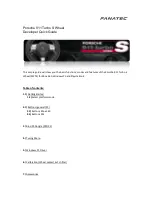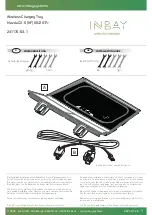
The air conditioning system uses R-134a refrigerant and FD46XG (PAG) refrigerant oil, which are not compatible
with R-12 refrigerant and mineral oil. Do not use R-12 refrigerant or mineral oil in this system, and do not attempt
to use R-12 servicing equipment; damage to the air conditioning system or your servicing equipment will result.
If accidental system discharge occurs, ventilate work area before resuming service.
R-134a service equipment or vehicle air conditioning systems should not be pressure tested or leak tested with
compressed air.
TIBURON(GK) > 2003 > G 2.7 V6 DOHC > Heating,Ventilation, Air Conditioning > General Information >
General Safety Information and Caution, TIBURON(GK) > 2003 > G 2.7 V6 DOHC > Heating,Ventilation,
Air Conditioning > General Information > General Safety Information and Caution
PRECAUTIONS
• Air conditioning refrigerant or lubricant vapor can irritate your eyes, nose, or throat.
• Be careful when connecting service equipment
• Do not breathe refrigerant or vapor.
• Compressed air mixed with R-134a forms a combustible vapor.
• The vapor can burn or explode causing serious injury.
• Never use compressed air to pressure test R-134a service equipment or vehicle air conditioning
systems.
• Always disconnect the negative cable from the battery whenever replacing air conditioning parts.
• Keep moisture and dirt out of the system, When disconnecting any lines, plug or cap the fittings immediately;
don t remove the caps or plugs until just before you reconnect each line.
• Before connecting any hose or line, apply a few drops of refrigerant oil to the O-ring.
• When tightening or loosening a fitting, use a second wrench to support the matching fitting.
• When discharging the system, use a R-134a refrigerant recovery/recycling/charging station; don t release
refrigerant into the atmosphere.
Page 1 of 1
24.04.2008
http://www.hmaservice.com/viewer/content.asp?IsPrint=true&imgnum=1&print_title...
















































